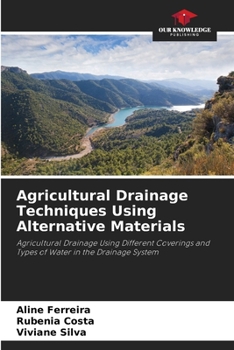Agricultural Drainage Techniques Using Alternative Materials
Mello (2008) states that in an area intended for agricultural exploitation, it is essential that the soil has a moisture content suitable for crop germination and development. Therefore, it is necessary to establish and maintain an optimal balance of water, oxygen, and salts in the root zone in order to provide ideal conditions for crop survival. If rainfall in the region is not sufficient at the appropriate times to maintain adequate soil moisture content, irrigation is the recommended technique to compensate for this deficiency. On the other hand, if the soil remains excessively moist for long periods, the adoption of a drainage system is the solution to the problem. In irrigated regions, where water with high salt content is used, drainage is used to control the rise of the water table and eliminate leaching water, in order to prevent soil salinization. Therefore, the main benefits of agricultural drainage are: incorporation of new areas into agricultural production, increased agricultural productivity, control of soil salinity, recovery of saline and/or alkaline soils, and public and animal health.
Format:Paperback
Language:English
ISBN:6209132480
ISBN13:9786209132483
Release Date:October 2025
Publisher:Our Knowledge Publishing
Length:68 Pages
Weight:0.23 lbs.
Dimensions:0.2" x 6.0" x 9.0"
Customer Reviews
0 rating





